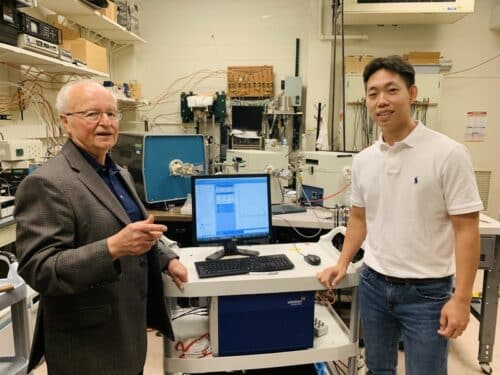Researchers from MIT have found that changing the pH level of the system can significantly increase the lifetime of the fuel cells.

Image Credits: Hendrick Wulfmeier, MIT news
While the researchers across the globe are working on finding various methods to increase the lifetime of a fuel cell, a team has dug deep down to the fundamentals. They have found that altering the pH of the system can significantly increase the lifetime of the fuel cell compared to the initial value.
A fuel cell has a cathode and an anode separated by the electrolyte. During electrolysis, electricity from the source (wind or solar) is used to generate storable fuel. Similarly, this storable fuel cell generates electricity in the absence of the source. In a working cell, the stacks of individual cells are connected by chrome interconnects to prevent oxidation. At higher temperature, this chrome evaporates and migrates between the cathode and the electrolyte, which reduces the lifetime of the cell. The team worked on slowing down this process to extend the cell lifetime.
The researchers coated the cathode with lithium oxide, which can revive the poisoned cell. Increasing the level of lithium oxide improves the performance beyond the initial value. When analyzing the material on nanoscale, the researchers found that the lithium oxide dissolves chromium to form a glassy material. This glassy material does not degrade the cathode of the cell, increasing the lifetime and efficiency eventually.
The engineers are optimistic that their work could be applied to other technologies including sensors, catalysts, and oxygen permeation-based reactors. The team is also exploring the effect of acidity on systems that are poisoned by other elements like silica.
“As is often the case in science, you stumble across something and notice an important trend that was not appreciated previously. Then you test that concept further, and you discover that it is really very fundamental,” concludes Harry L. Tuller, Professor of Ceramics and Electronic Materials in the Department of Materials Science and Engineering (DMSE), MIT.






